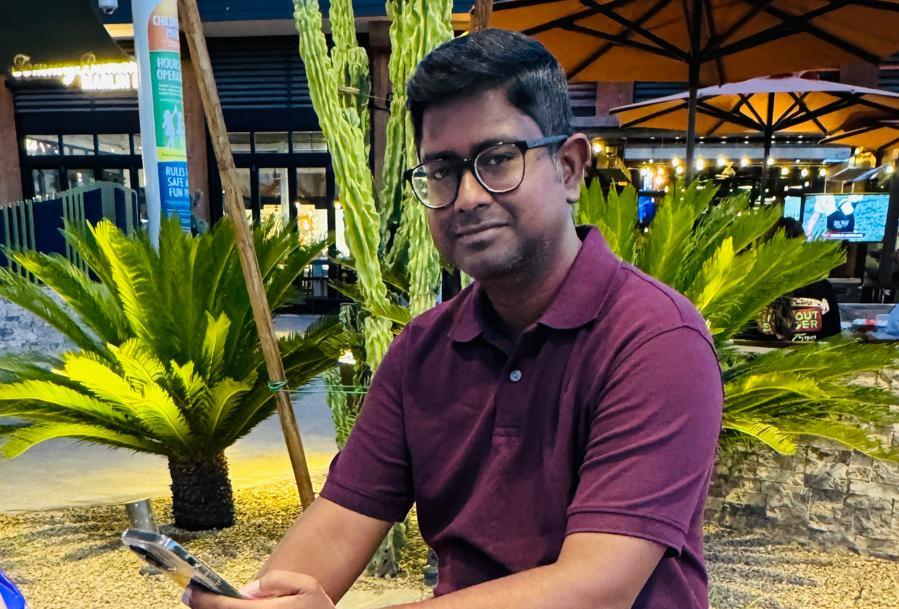The field of human resources is changing dramatically. HR, which was formerly characterized by paperwork, policy manuals, and people-centric procedures, is now at the forefront of data-driven decision-making and intelligent automation. Organizations have been forced to reconsider how they provide HR services due to the global trend toward remote work, workforce decentralization, and employee-first culture. Workbots driven by AI are replacing traditional workflows because they not only automate repetitive tasks but also provide predictive insights, individualized employee experiences, and faster, more scalable operations. Workday and similar platforms are evolving into cognitive engines for workforce strategy, not merely back-office systems.
Ilango Kessavane is a name that is synonymous with AI innovation in HR technology in this changing environment. Kessavane, a seasoned Workday Solutions Architect, has been leading the charge to use artificial intelligence to transform enterprise HR systems. He has spearheaded extensive deployments of Workday’s most sophisticated modules, including the AI Skills Cloud for Learning, and has been instrumental in converting inert HR procedures into intelligent, dynamic ecosystems. His efforts have enabled businesses to use Workday as a strategic asset that can influence the workforce of the future, rather than merely as a tool.
Kessavane’s leadership has been instrumental in defining AI-first HR strategies in complex enterprise environments, including post-merger integrations and talent transformation initiatives. His innovations have yielded great results, including over $1 million in annual savings through automation, a 35% improvement in process efficiency, and a 45% jump in HR service resolution rates. He has also dramatically reduced manual workloads by 50% through hybrid AI-human collaboration models, allowing HR teams to focus on higher value initiatives while bots handle routine queries, onboarding, and documentation.
One of his landmark projects includes the development of a Workbot-enabled talent acquisition platform, capable of ranking candidates, automating communications, and even analyzing pre-interview questionnaires—all within the Workday environment. He also pioneered the integration of NLP-driven bots into the Workday Help module, resulting in faster query resolutions and a more responsive employee support system. These innovations are not just technical enhancements they are strategic breakthroughs that have elevated the HR function to a more proactive, insight-led role within the business.
The professional’s data-driven approach extends to predictive modeling as well. He has successfully combined internal Workday data with AI analytics to develop attrition risk models, helping organizations identify and retain high-risk talent pools. This led to an 18% reduction in attrition rates across key business units, an achievement that highlights how AI can directly influence employee retention strategies.
Reportedly, while the technical achievements are impressive, the journey has not been without challenges. Kessavane tackled significant resistance in integrating AI into legacy systems, balancing user experience with automation. His solution is a hybrid AI-human interaction model that preserved the human touch while introducing intelligent efficiencies. To address skepticism about AI decision-making, he implemented transparent governance frameworks that helped build trust in AI’s recommendations, creating a sustainable path for future AI deployments.
Beyond implementation, the expert contributes actively to the academic and professional discourse around HR technology. He has authored several papers, including “A Comprehensive Review of AI and ML Transformations in Human Resource Management”, “Leveraging AI in HR Analytics”, and “AI-Powered Talent Acquisition: How Workday and Oracle EBS are Reshaping Recruitment”. These works reflect both his depth of knowledge and his commitment to pushing the industry forward through shared learning and innovation.
Interestingly, he asserts that AI-enhanced employee experiences will propel HR into the next era. He says, “Intelligence at the front line integrated into every workflow, decision, and interaction, is replacing analytics at the backend.” In his ideal future, HR bots will serve as in-the-moment advisors, offering managers and staff contextual knowledge. But because HR is still fundamentally about people, he warns that the application of AI must be based on simplicity, openness, and empathy.
Ilango Kessavane’s work serves as a model for what can be achieved when human-centric design and state-of-the-art technology are combined, as companies around the world endeavor to develop workforces that are prepared for the future. He is assisting organizations in leading the future of work, rather than merely responding to it, by converting HR workflows into Workbot-powered experiences.
